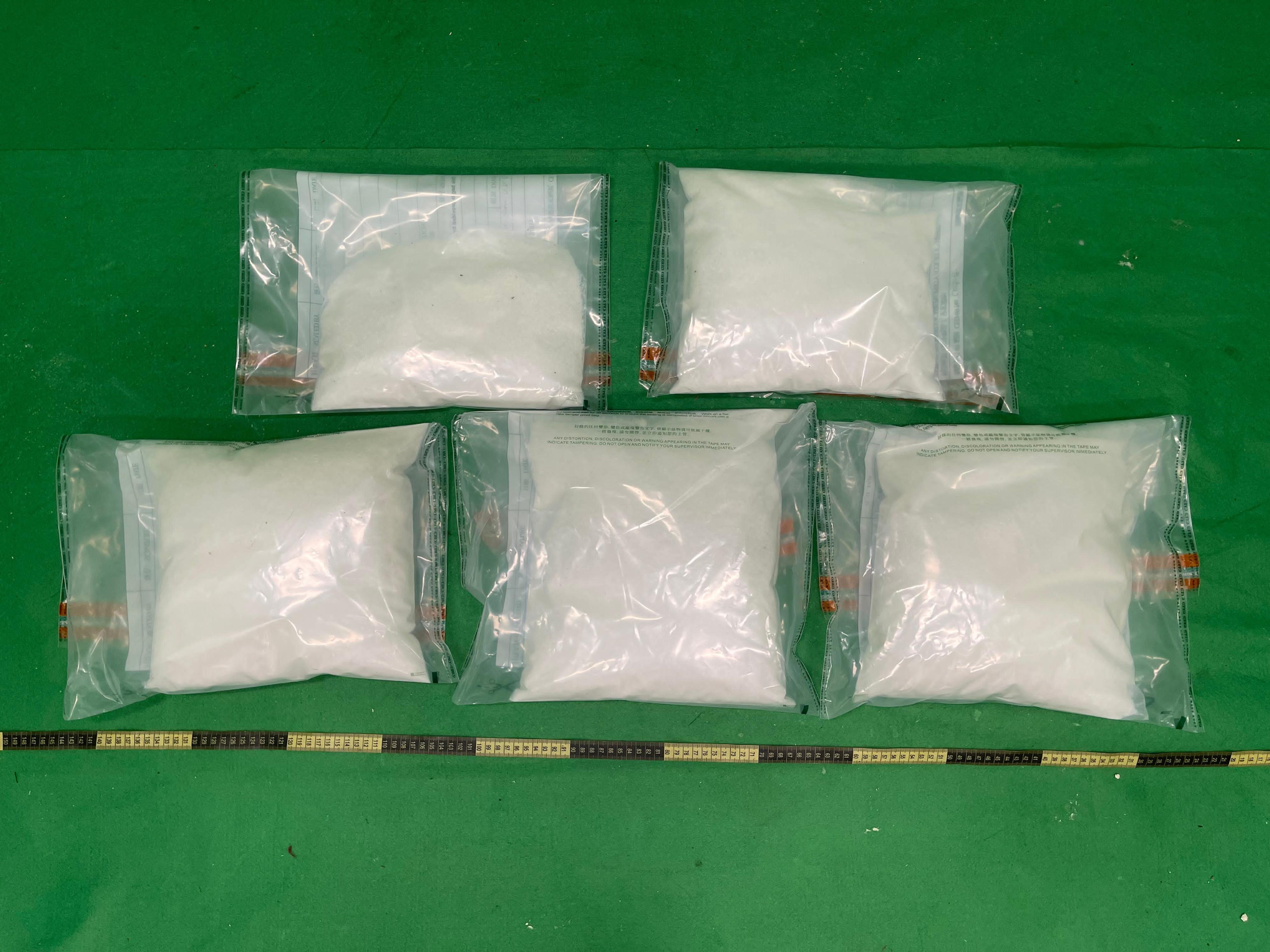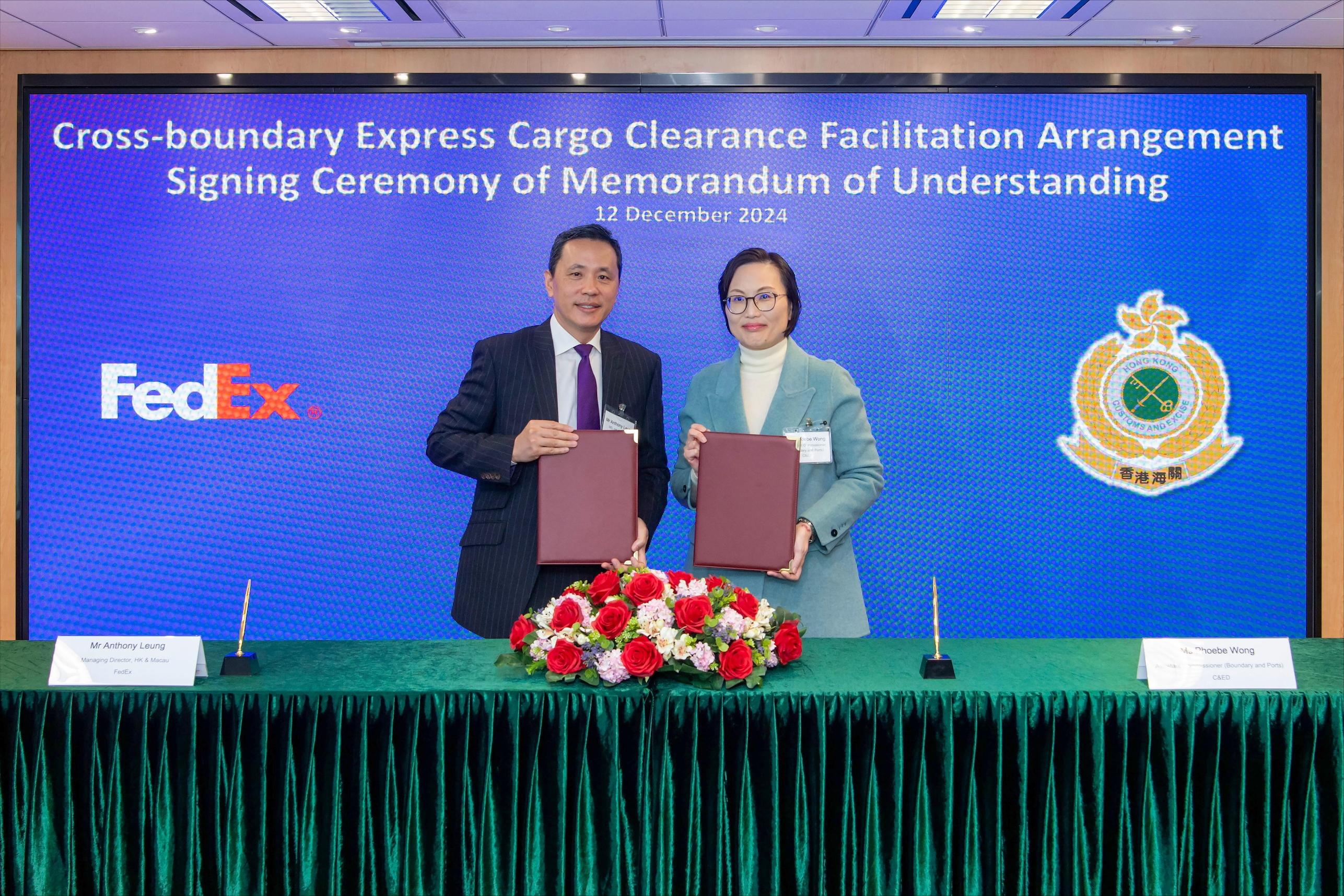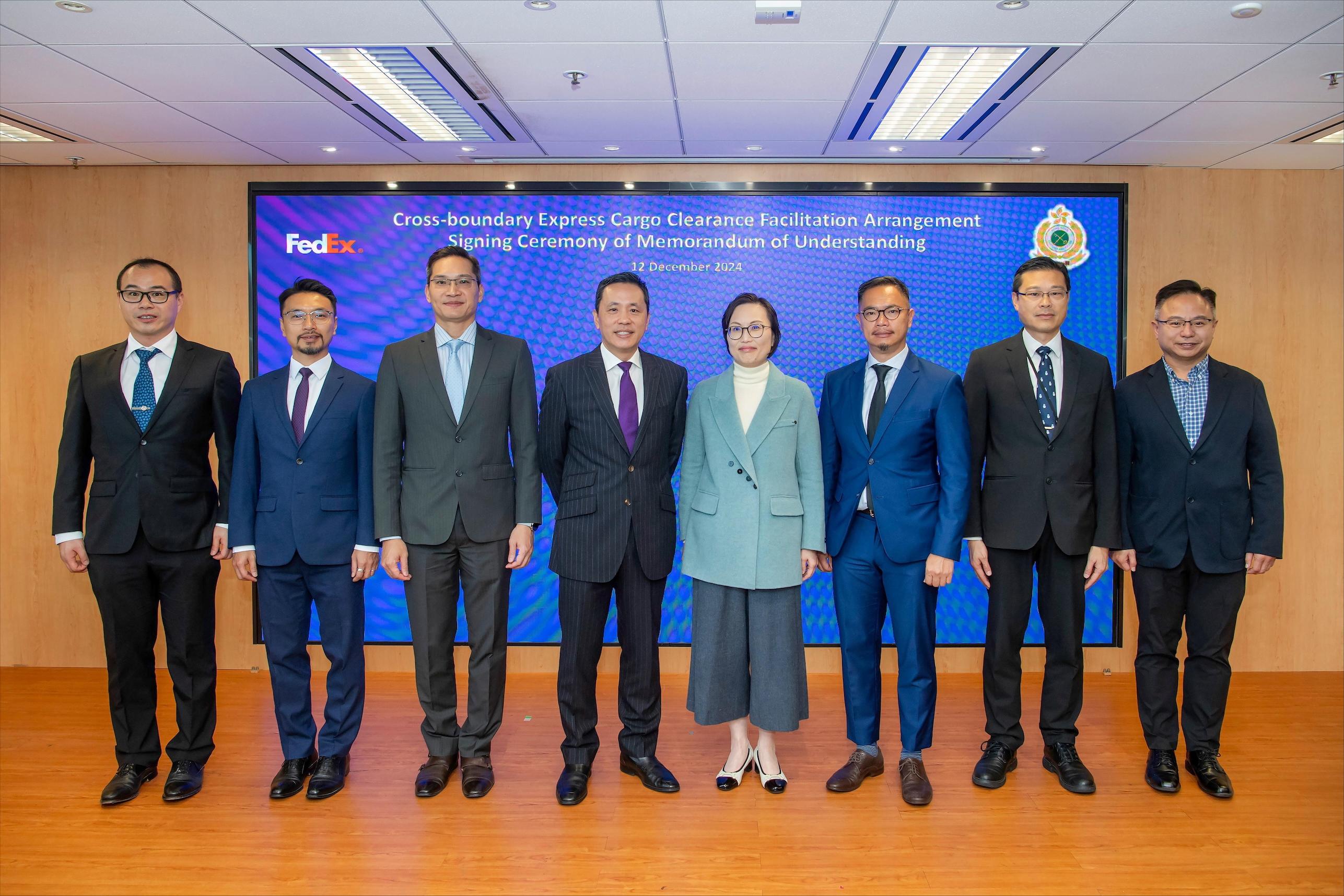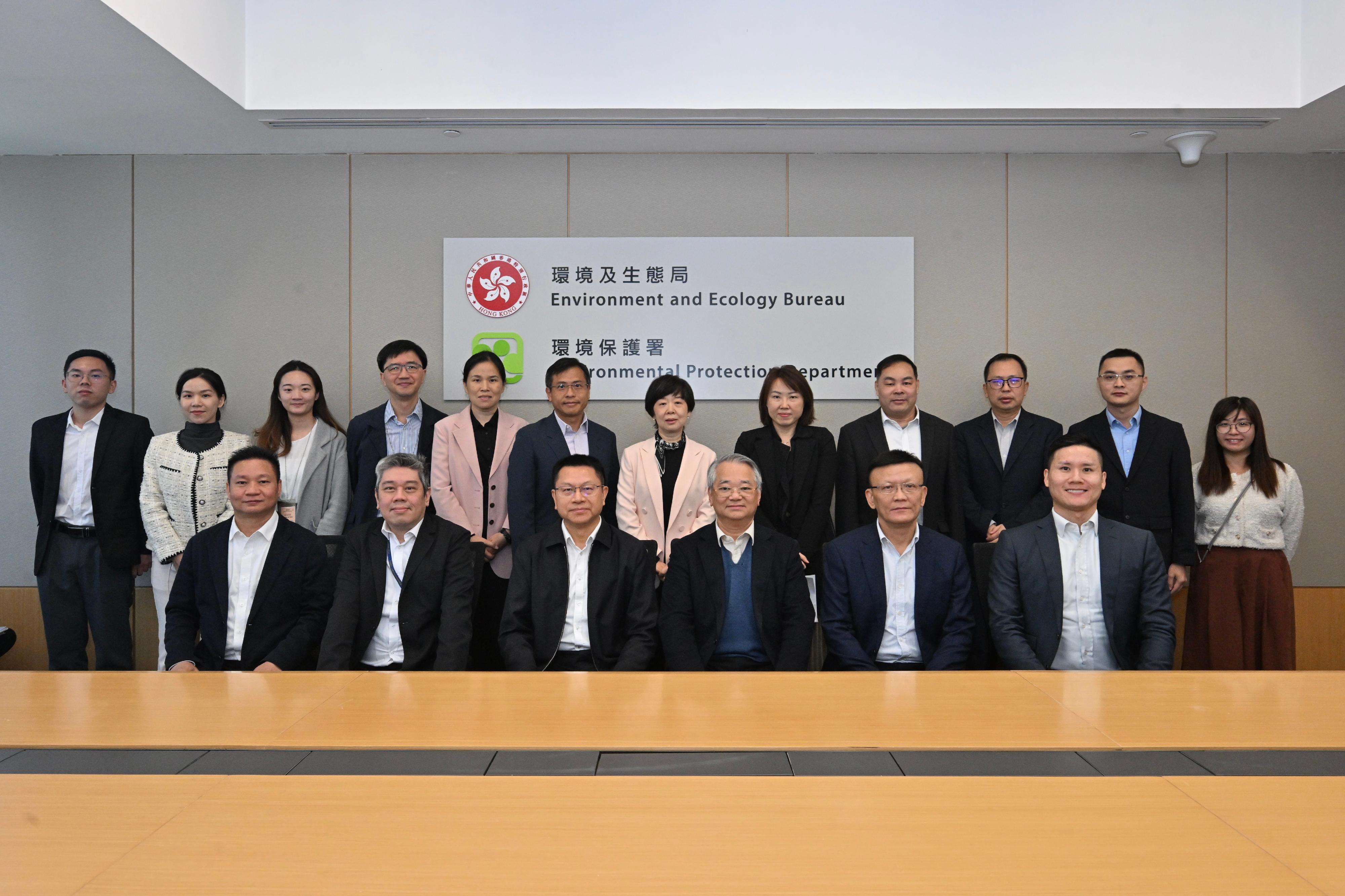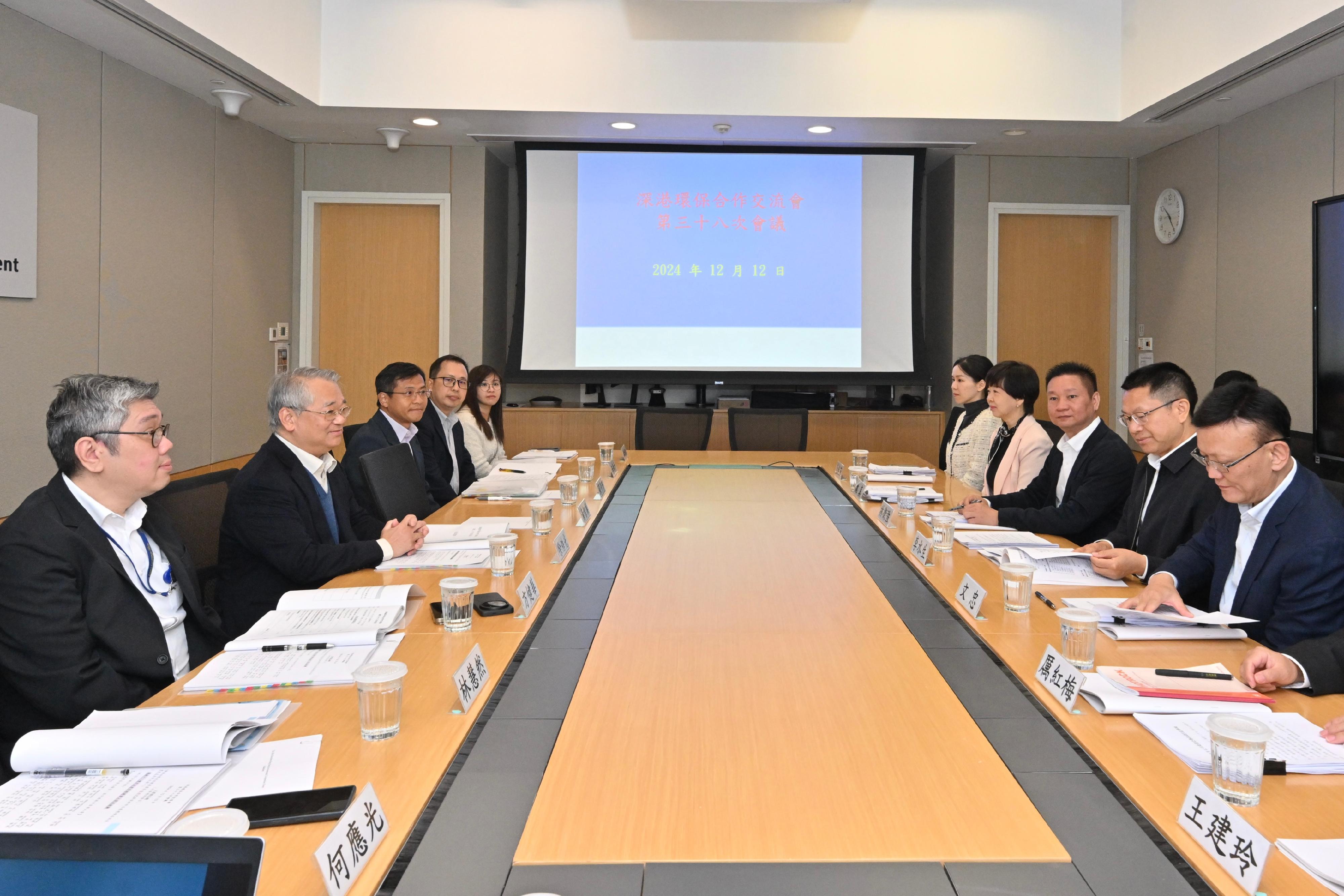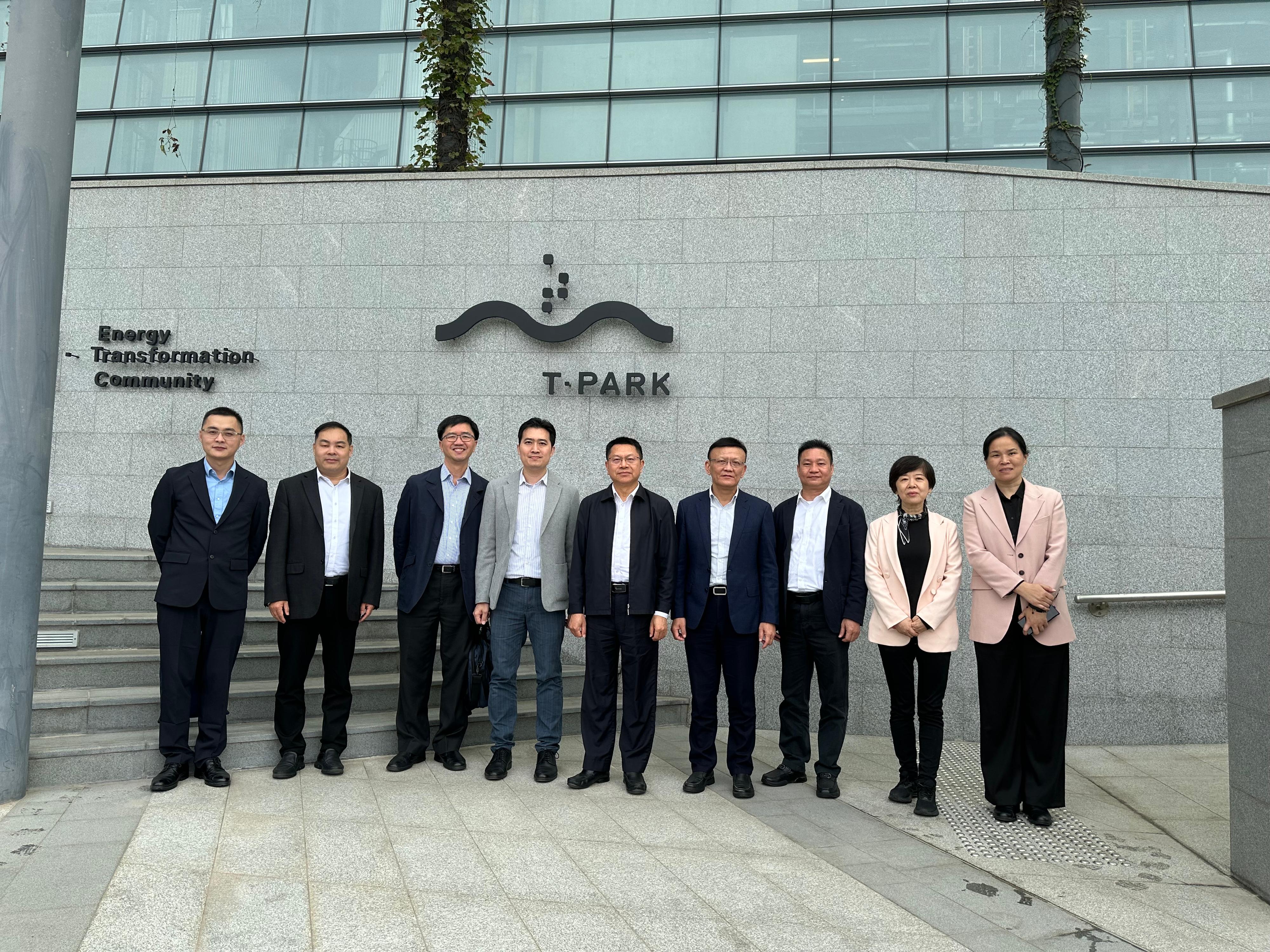Hong Kong Customs seizes suspected ketamine worth about $5.7 million at airport (with photo)
Hong Kong Customs yesterday (December 11) detected a drug trafficking case involving baggage concealment at Hong Kong International Airport. About 12 kilograms of suspected ketamine with an estimated market value of about $5.7 million was seized.
A 32-year-old male passenger arrived in Hong Kong from Copenhagen, Denmark, via Helsinki, Finland, yesterday. During Customs clearance, the batch of suspected ketamine was found in 10 bags of drink powder and dog food inside his check-in suitcase. The man was subsequently arrested.
The arrested man has been charged with one count of trafficking in a dangerous drug. The case will be brought up at the West Kowloon Magistrates’ Courts tomorrow (December 13).
Customs will continue to apply a risk assessment approach and focus on selecting passengers from high-risk regions for clearance to combat transnational drug trafficking activities.
Under the Dangerous Drugs Ordinance, trafficking in a dangerous drug is a serious offence. The maximum penalty upon conviction is a fine of $5 million and life imprisonment.
Members of the public may report any suspected drug trafficking activities to Customs’ 24-hour hotline 182 8080 or its dedicated crime-reporting email account (crimereport@customs.gov.hk) or online form (eform.cefs.gov.hk/form/ced002).


